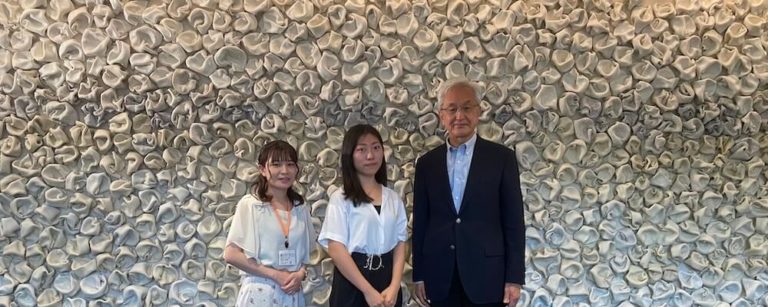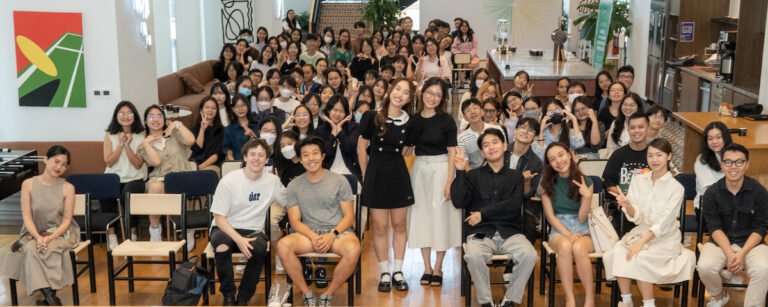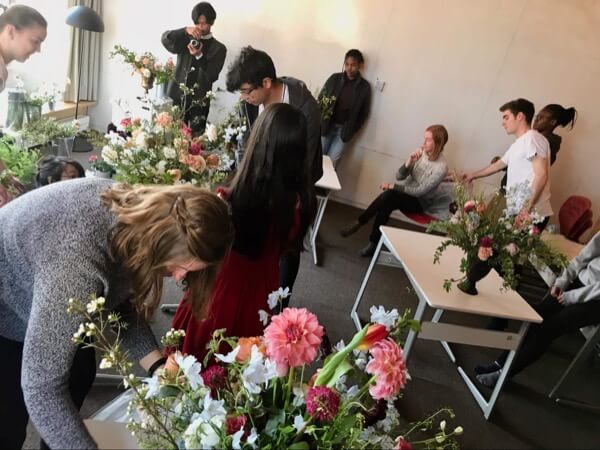This blog post is the second part of a series about the leadership projects of our Grade 10 student Manaha (Japan), focusing on her project about Food Waste. Make sure to also read Part I (Peace Education & Awareness) and Part III (Education in Japan) to learn more!
Part II: Manaha’s Fight for a Zero Food Waste Campus
Taking action: Manaha tackles campus food waste
UWC ISAK’s core leadership vision involves “taking action in the face of discomfort.” Manaha found herself in such a situation when confronted with food waste in the cafeteria, Cezars’ Kitchen. “I just didn’t feel at ease eating where people wasted so much food,” she said. “It was clear to me that our campus needed to change its attitude towards food waste and consumption.”
Launching a zero food waste campaign: education and motivation
Manaha initiated a zero-food waste campaign at UWC ISAK to address this issue. She started by raising awareness through posters and presentations highlighting food waste’s environmental and social implications. Manaha explained, “I wanted my peers to understand the gravity of the problem and to feel inspired to take action.”
Enlisting Support: Students and Staff Join the Cause
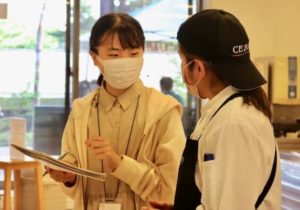 Manaha’s dedication quickly gained traction as students, faculty, and staff rallied behind her cause. Collaborating with Cezars’ Kitchen, she introduced a system to measure and monitor food waste, holding weekly meetings to discuss progress and brainstorm solutions. “It was amazing to see everyone come together, share ideas, and work towards a common goal,” Manaha said.
Manaha’s dedication quickly gained traction as students, faculty, and staff rallied behind her cause. Collaborating with Cezars’ Kitchen, she introduced a system to measure and monitor food waste, holding weekly meetings to discuss progress and brainstorm solutions. “It was amazing to see everyone come together, share ideas, and work towards a common goal,” Manaha said.
Tangible Results: Dramatic Reduction in Food Waste
Manaha’s efforts significantly reduced food waste at UWC ISAK, with more than a percentage 40% reduction within just a few months. Through her initiatives, students became more conscious of their consumption habits, while Cezars’ Kitchen implemented new strategies to minimize waste, such as adjusting portion sizes and repurposing leftovers.
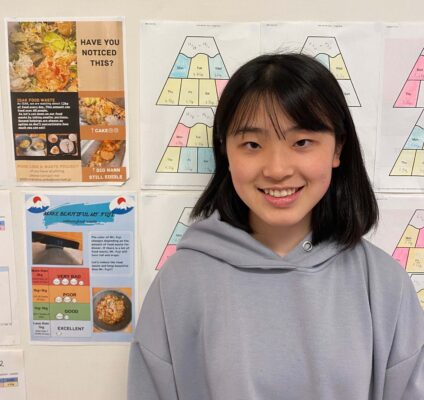 To create awareness about food waste, Manaha represented the daily food waste at the cafeteria by coloring a print of Mount Fuji. The more Mount Fuji is white, the better it is in terms of food waste. Students gave positive feedback, and the kitchen staff noticed reduced food waste.
To create awareness about food waste, Manaha represented the daily food waste at the cafeteria by coloring a print of Mount Fuji. The more Mount Fuji is white, the better it is in terms of food waste. Students gave positive feedback, and the kitchen staff noticed reduced food waste.
To make the amount of food waste more visible to people cleaning their plates after a meal at the cafeteria, Manaha ordered a transparent bucket for food waste in her residence. The Cezars’ Kitchen staff is willing to implement a similar measure in the cafeteria that will encourage students to be more mindful of their food waste and contribute to reducing it further.
An initiative anchored in the local community
Also, Manaha is interested in extending her project to the local community. She proposed some ideas to the Karuizawa town government to reduce food waste, including creating a guidebook for tourists to reduce their food waste, interviewing restaurants striving to reduce theirs, and attracting people to restaurants with a positive impact.
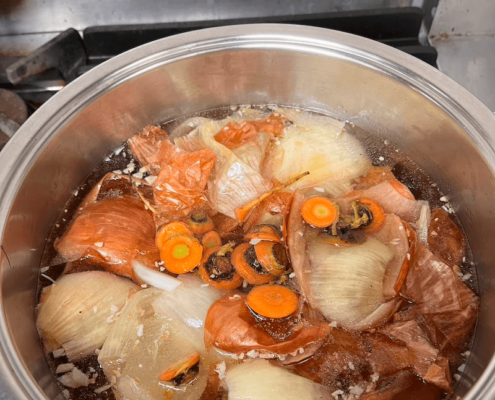
During Fall and Spring Project Weeks, Manaha visited local farmers and restaurants to ask how they deal with food waste. The people she met had diverse ideas and actions about food waste, from not doing anything to giving unsold food as donations to nurseries and schools. She participated in a local event about food waste organized by the Karuizawa community on March 4, 2023. She learned a lot about the Karuizawa food cycle there. The event consisted of a discussion followed by a movie screening. Participants could eat a delicious soup cooked from leftover vegetables from supermarkets and farmers, accompanied by bread from the day before.
A lasting impact: Manaha’s legacy of sustainable practices
Despite Manaha still being in her first year at UWC ISAK Japan, her work is a model of sustainability for future generations to build on. The zero food waste campaign has been integrated into the school’s sustainability program, ensuring students will continue learning about the importance of responsible consumption. Reflecting on her journey, Manaha said, “I’m proud of what we’ve accomplished and grateful for the support of my peers and the school staff. It’s been an incredible experience, and I hope our efforts inspire others to take action as well.”
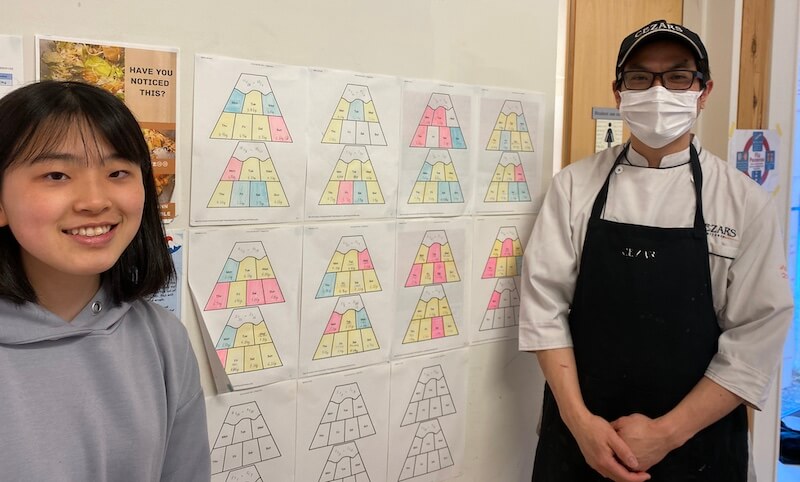
Manaha’s dedication to peace education and her fight for a zero food waste campus are testaments to the power of individual action in creating meaningful change. Through her commitment and determination, she has impacted her school community and set an inspiring example for others to follow.
In the final post in our series on Manaha, learn about her efforts to improve the Japanese education system. Previously in Part I, we delved into how Manaha is raising awareness on Peace by offering UWC ISAK students the opportunity to interact with atomic bomb survivors.
